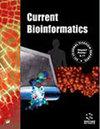An Effective Method to Identify Cooperation Driver Gene Sets
IF 2.9
3区 生物学
Q3 BIOCHEMICAL RESEARCH METHODS
引用次数: 0
Abstract
Background: In cancer genomics research, identifying driver genes is a challenging task. Detecting cancer-driver genes can further our understanding of cancer risk factors and promote the development of personalized treatments. Gene mutations show mutual exclusivity and cooccur, and most of the existing methods focus on identifying driver pathways or driver gene sets through the study of mutual exclusivity, that is functionally redundant gene sets. Moreover, less research on cooperation genes with co-occurring mutations has been conducted. Objective: We propose an effective method that combines the two characteristics of genes, cooccurring mutations and the coordinated regulation of proliferation genes, to explore cooperation driver genes. Methods: This study is divided into three stages: (1) constructing a binary gene mutation matrix; (2) combining mutation co-occurrence characteristics to identify the candidate cooperation gene sets; and (3) constructing a gene regulation network to screen the cooperation gene sets that perform synergistically regulating proliferation. Results: The method performance is evaluated on three TCGA cancer datasets, and the experiments showed that it can detect effective cooperation driver gene sets. In further investigations, it was determined that the discovered set of co-driver genes could be used to generate prognostic classifications, which could be biologically significant and provide complementary information to the cancer genome. Conclusion: Our approach is effective in identifying sets of cancer cooperation driver genes, and the results can be used as clinical markers to stratify patients.识别合作驱动基因组的有效方法
背景:在癌症基因组学研究中,确定驱动基因是一项具有挑战性的任务。检测癌症驱动基因可以进一步了解癌症风险因素,促进个性化治疗的开发。基因突变具有互斥性和共存性,现有方法大多侧重于通过研究互斥性(即功能冗余基因集)来识别驱动通路或驱动基因集。此外,对同时发生突变的合作基因的研究较少。研究目的我们提出了一种有效的方法,结合基因的共生突变和增殖基因的协调调控这两个特点来探索合作驱动基因。方法:本研究分为三个阶段:(1)构建二元基因突变矩阵;(2)结合突变共现特征确定候选合作基因集;(3)构建基因调控网络筛选出协同调控增殖的合作基因集。结果:在三个 TCGA 癌症数据集上评估了该方法的性能,实验表明它能检测出有效的合作驱动基因集。在进一步研究中,发现的合作驱动基因集可用于生成预后分类,这可能具有生物学意义,并为癌症基因组提供补充信息。结论我们的方法能有效识别癌症合作驱动基因集,其结果可作为临床标记对患者进行分层。
本文章由计算机程序翻译,如有差异,请以英文原文为准。
求助全文
约1分钟内获得全文
求助全文
来源期刊

Current Bioinformatics
生物-生化研究方法
CiteScore
6.60
自引率
2.50%
发文量
77
审稿时长
>12 weeks
期刊介绍:
Current Bioinformatics aims to publish all the latest and outstanding developments in bioinformatics. Each issue contains a series of timely, in-depth/mini-reviews, research papers and guest edited thematic issues written by leaders in the field, covering a wide range of the integration of biology with computer and information science.
The journal focuses on advances in computational molecular/structural biology, encompassing areas such as computing in biomedicine and genomics, computational proteomics and systems biology, and metabolic pathway engineering. Developments in these fields have direct implications on key issues related to health care, medicine, genetic disorders, development of agricultural products, renewable energy, environmental protection, etc.
 求助内容:
求助内容: 应助结果提醒方式:
应助结果提醒方式:


